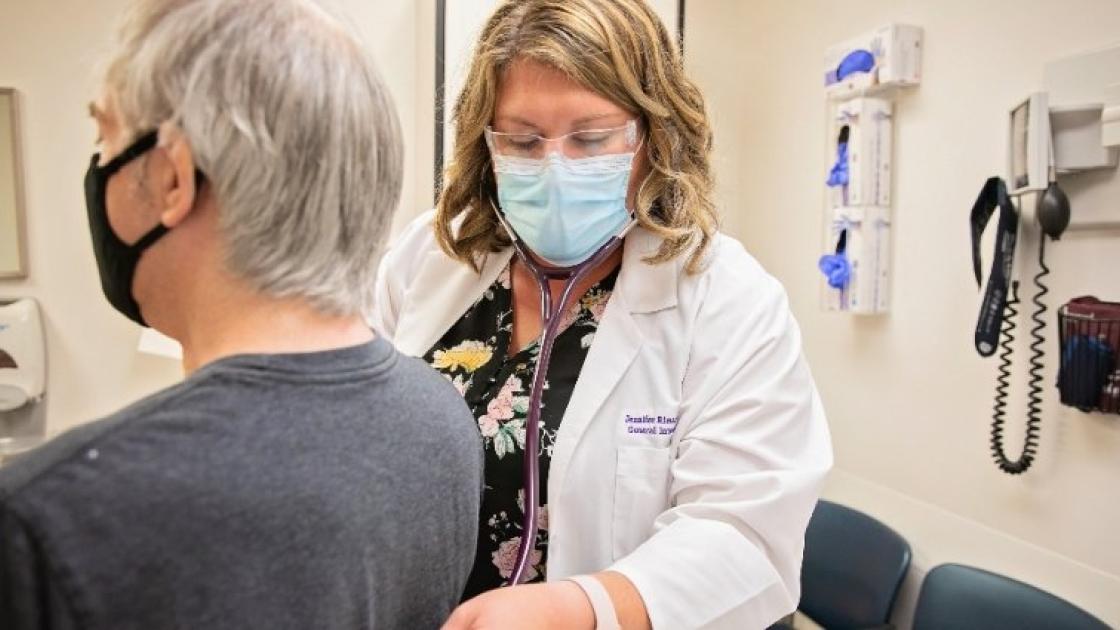
Caring for someone with COVID-19
The COVID-19 pandemic has been a stressful time for us all—and especially for anyone who has seen or will see a loved one fall ill. And while most people who contract COVID-19 experience only mild symptoms (if any), the condition can become more serious for some individuals. To promote a speedy recovery and ensure your loved one gets additional medical care as soon as necessary, it's important to offer supportive care while you both self-quarantine at home.
But how can you provide great care while still protecting yourself? Keep reading to learn some of the top caregiving tips for your loved one from our experts at SIU Medicine and other professional organizations, including the CDC.
5 things to do when caring for a loved one who has COVID-19
1. Ensure Basic Needs Are Met
If a person with COVID-19 becomes symptomatic, they'll most likely experience flu-like symptoms such as cough, fever and chills. The majority of people with these symptoms get better within a few days or a few weeks. During this time, make sure your loved one is:
- Staying well hydrated
- Getting plenty of rest and quality nutrition
- Taking all their medications as prescribed (if applicable)
You can also help your loved one focus on the healing process by offering to do some of their chores, such as bills, pet care and other household tasks.
2. Limit Contact
To reduce your risk of contracting the virus that causes COVID-19, minimize your contact with your loved one as they recover. Whenever possible, try:
- Allowing the person to stay in their own bedroom and use their own bathroom (or stay as separate as possible)
- Maintaining good airflow in the home
- Using separate dinnerware, linens and other personal items (do not share)
- Wearing masks and gloves when interacting directly with each other or touching/handling your loved one's belongings (e.g., linens, dirty glasses, etc.)
3. Clean and Disinfect Often
Regularly clean and disinfect commonly touched surfaces in your home, including your light switches, door knobs, water faucets, sinks, and remotes, phones and other electronic devices.
4. Call Your Provider With Any Questions
Call your provider with any concerns about your family member who is sick with COVID-19. If your loved one's symptoms get worse, or if they start to experience difficulty breathing, chest pain, bluish coloring to their lips and fingers, or new confusion or change in mental status, call 911 or bring them to the hospital right away.
5. Prioritize Your Health
Make caring for yourself a priority, too! Caring about your own health is one of the best ways to reduce your chances of contracting COVID-19 or suffering from caregiver burden (physical and mental exhaustion that impairs your quality of life and even your ability to care for your loved one).
First, it’s important to remember the same three principles that limit COVID-19 virus transmission in society: wear a mask, practice good hand hygiene and maintain social distancing. Then:
- Get 7 to 9 hours of uninterrupted sleep
- Minimize the use of alcohol and other substances
- Eat a nutritious diet and stay well-hydrated
- Get physical activity every day
- If possible, spend time in nature
- Use stress management tools like journaling, deep breathing and meditation
- Reach out to a friend for emotional support
- Ask for professional help from a mental health counselor, etc.
Do you need some guidance while caring for a sick loved one? Contact SIU Medicine at 217-545-8000 and schedule a consultation with a psychologist or medical provider. They can offer mental and physical support to help you feel your best as you help your loved one recover.




